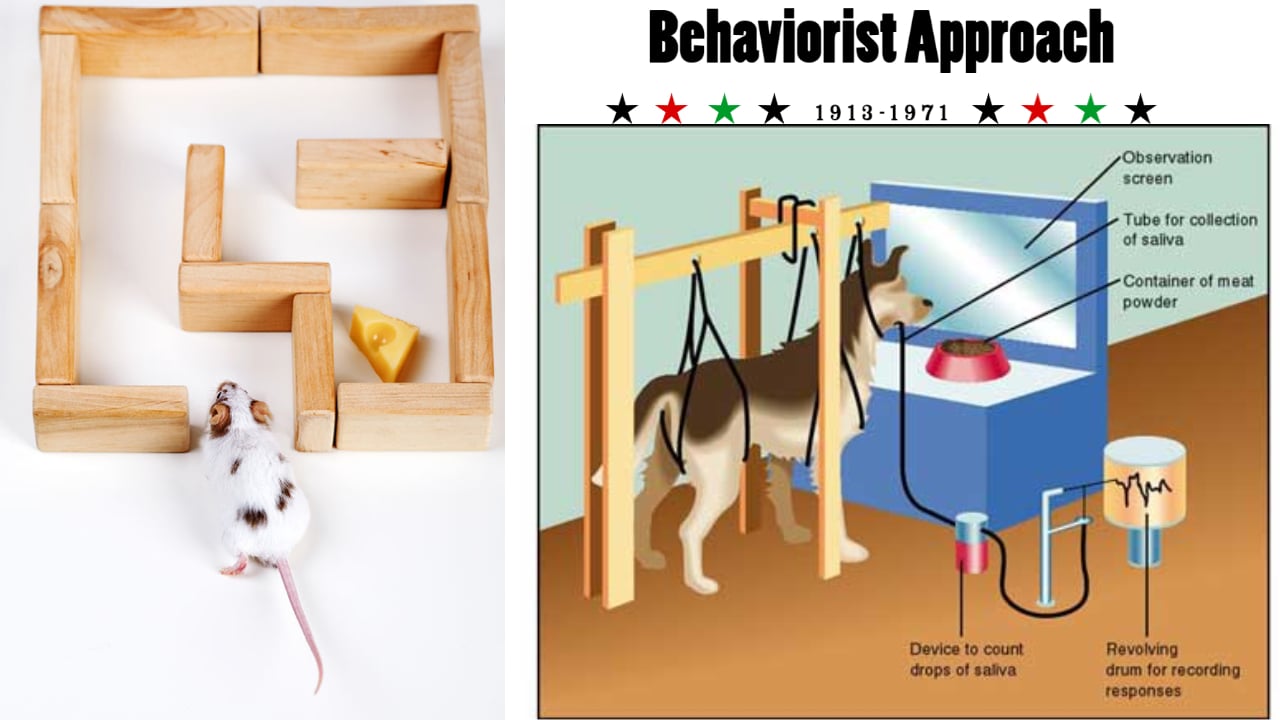Classical conditioning is a learning process in which a neutral stimulus becomes associated with a reflex-eliciting unconditioned stimulus, such that the neutral stimulus eventually elicits the same innate reflex response that the unconditioned stimulus does. For example, pairing a bell sound (neutral stimulus) with the presentation of food (unconditioned stimulus) can cause an organism to salivate (unconditioned response) when the bell rings, even without the food.| Simply Psychology
Behaviorism, also known as behavioral learning theory, is a theoretical perspective in psychology that emphasizes the role of learning and observable behaviors in understanding human and animal actions.| Simply Psychology




